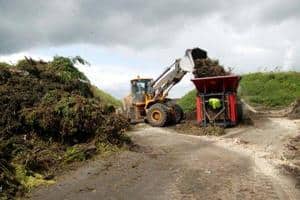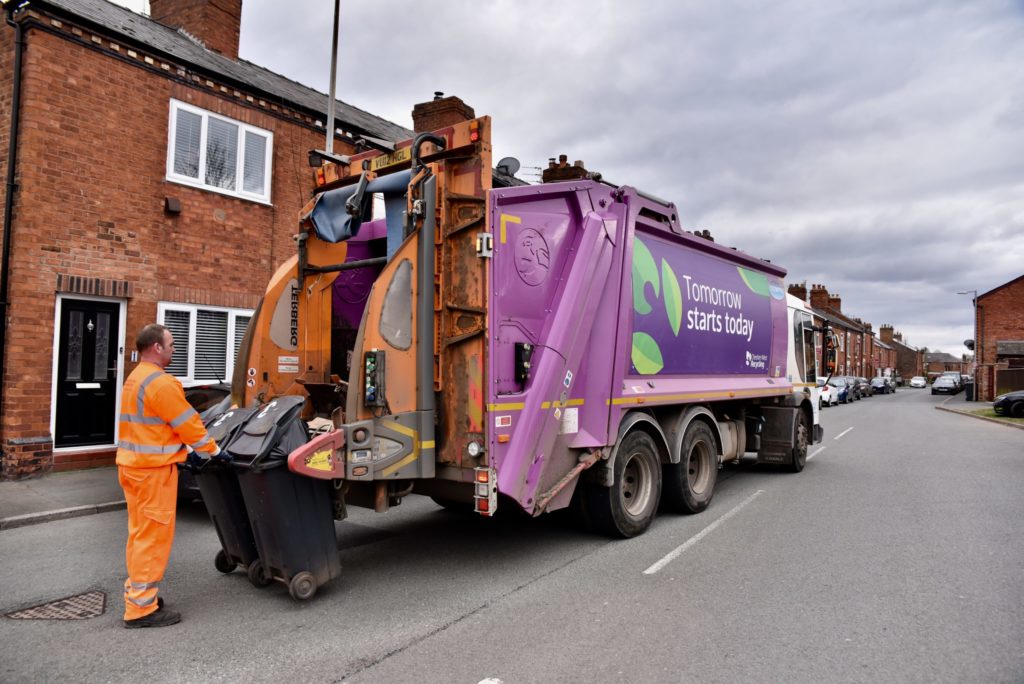A recent Court of Appeal ruling has raised some concerns among composters that it may be harder in future to gain planning permission for open windrow sites, as they may be deemed to be disposal operations.
After the planning approval, a local campaign group sought a judicial review on the grounds that the application fell within Schedule 2 of the Town and Country Planning (Environmental Impact Assessment) Regulations 1999 and the council's screening had been inadequate. The objectors were concerned about the compost to be produced and the impact it may have from being spread on land.
This led to the planning permission being overturned in March 2010 in London's High Court and now the council has lost an appeal case at the Court of Appeal.
Site
The composting site in question was to be developed by local farmer Eric Danforth, to handle 2,250 tonnes of green waste a year at his farm in Hood Green, Barnsley.
He told letsrecycle.com that the site would have taken municipal organic waste from Barnsley metropolitan borough council and would have operated under an exemption.
Court documents stated that the proposed site would treat “wagon loads of garden compost. It would be taken to an area where it would be piled up in ‘windrows' – stacks with a mound or bund around them. There it would biodegrade, eventually into fertiliser. Thence it would be taken and spread on Mr Danforth's land as fertiliser.”
Mr Danforth had previously failed twice to gain planning permission for the site, due to concerns about the impact it might have on the local area and the increased heavy goods vehicle movement it might cause.
However, on the third attempt permission was given. While carrying out its assessment, the council decided that the plans did not require an Environmental Impact Assessment (EIA) in accordance with Schedule 2 of the Town and Country Planning (Environmental Impact Assessment) Regulations 1999.
Developments which come under Schedule 2 are those developments likely to have significant effects on the environment by virtue of factors such as its nature, size or location. The council decided that Mr Danforth's proposal did not fit into this category.
However, a judicial review was launched on the basis that this decision was wrong.
It added that the council had “noted that the spread material would or might consist of partly degraded material, which as a result would be regarded as a waste.”
The claimant said that the site would “reach capacity very quickly” and due to this, “the waste operator will require planning for the spreading of partially matured waste”, in addition to the planning permission the council gave for the site itself.
For its part, the council claimed that it had acted “on the basis that the material which it will produce will be compost meeting the standards set out in the Environment Agency's Compost Quality Protocol. As such, it will not be waste”.
However, due to uncertainty over the impact of spreading the material on land, the High Court decided that the council had not been thorough enough in its assessment.
Giving his ruling in the High Court case, Judge Lord Carlile of Berriew QC said: “I have concluded that there was a serious error in the defendant's uncritical assumption throughout that, because the windrows into which the waste was received were of less than 0.5 hectares in area, this was not a development within Schedule 2 of the Regulations.
“The development may or may not be within the Schedule, but the point was well made the by objectors and should have been considered; if the material spread, (after degradation in the windrows) is correctly described as 'waste' as asserted by the claimant and others, the conclusion as to whether an EIA was required is likely to have been different.”
The council appealed the decision in October this year and the three judges at the Court of Appeal, Lord Justice Mummery, Lord Justice Etherton and Lord Justice Sullivan, all dismissed the appeal and said they were “entirely satisfied with” Lord Carlile's decision.
The appeal case found that “during the course of the hearing before Lord Carlile it was conceded on behalf of the council that, at least arguably, the proposed development fell within paragraph 11(b) of Schedule 2: an “Installation for the disposal of waste … (where) … the area of the development exceeds 0.5 hectare.”
Flawed
I am passionate about this case because if something is factually incorrect and it is likely to set a precedent for future cases
Rachel Brakes, CO2Sense Yorkshire
Rachel Brakes, planning and permitting manager at CO2Sense Yorkshire, which promotes recycling in the county, claimed the decision was “flawed”.
She said that decisions in the judgement had been based on a description of composting at the proposed site as a “disposal activity”. Ms Brakes said that composting operations should be classed as a recovery or recycling operations, even if they do not meet PAS 100 and Quality Protocol standards.
Ms Brakes is concerned that the case has set a precedent which could lead to more composting operations being classed as “disposal operations”. If composting was legally classed as disposal this could mean that all composting facilities would have to pay for an Environmental Impact Assessment – something that must be completed for all Schedule 2 waste disposal sites.
EIAs can cost upwards of £10,000 making it unfeasible for smaller sites to be developed.
She added: “I am passionate about this case because if something is factually incorrect and it is likely to set a precedent for future cases, it could have an impact on composting in the future.”
Risk
Her colleague, Matt Hill, project manager at CO2Sense, who has been responsible for helping to increase composting capacity in Yorkshire, said if all new composting sites were required to get Environmental Impact Assessments (EIAs) then the sector could be “at risk” because of the disproportionately high cost of paying for EIAs.
He said: “EIAs are an extra cost and in terms of proportionate risk management I think it is a disproportionate cost. In composting we are expected to ensure we are managing risk in a proportionate manner.
“If all sites have to get an EIA it could be a threat to smaller sites. We are still working out what the case means but it appears to be a significant threat to any new planning applications.”
Jeremy Jacobs, managing director of the Association for Organics Recycling, said the decision was likely to have some bearing on future planning cases but said he was unsure if, in fact, the case did actually mean that all sites will require an EIA.
He said: “It is unclear exactly why, in this case, the spreading of compost to land has been classed as a waste disposal activity and I would be keen to know why this decision was made.”
Commenting on the case in CIWM magazine, Jacqui O'Keefe, from legal firm Howard Kennedy, added that the case highlighted how important it was to understand the legislation when dealing with waste planning applications.
She said “This case illustrates the importance of understanding the law relating to waste facilities and how easy it is to slip up.”
Unfeasible
Mr Danforth, who farms sheep, pigs and arable land, is concerned that the decision will have far-reaching affect on the composting sector.
He said: “If they [the council] lost the appeal it could shut composting sites down across the country. It means that all the little sites will have to have an EIA which will add paperwork and make it unfeasible to develop new sites.”
Barnsley metropolitan borough council commented: “The Council are now reviewing the Court of Appeal decision prior to any further action. No further comment can be made at this time.”













Subscribe for free